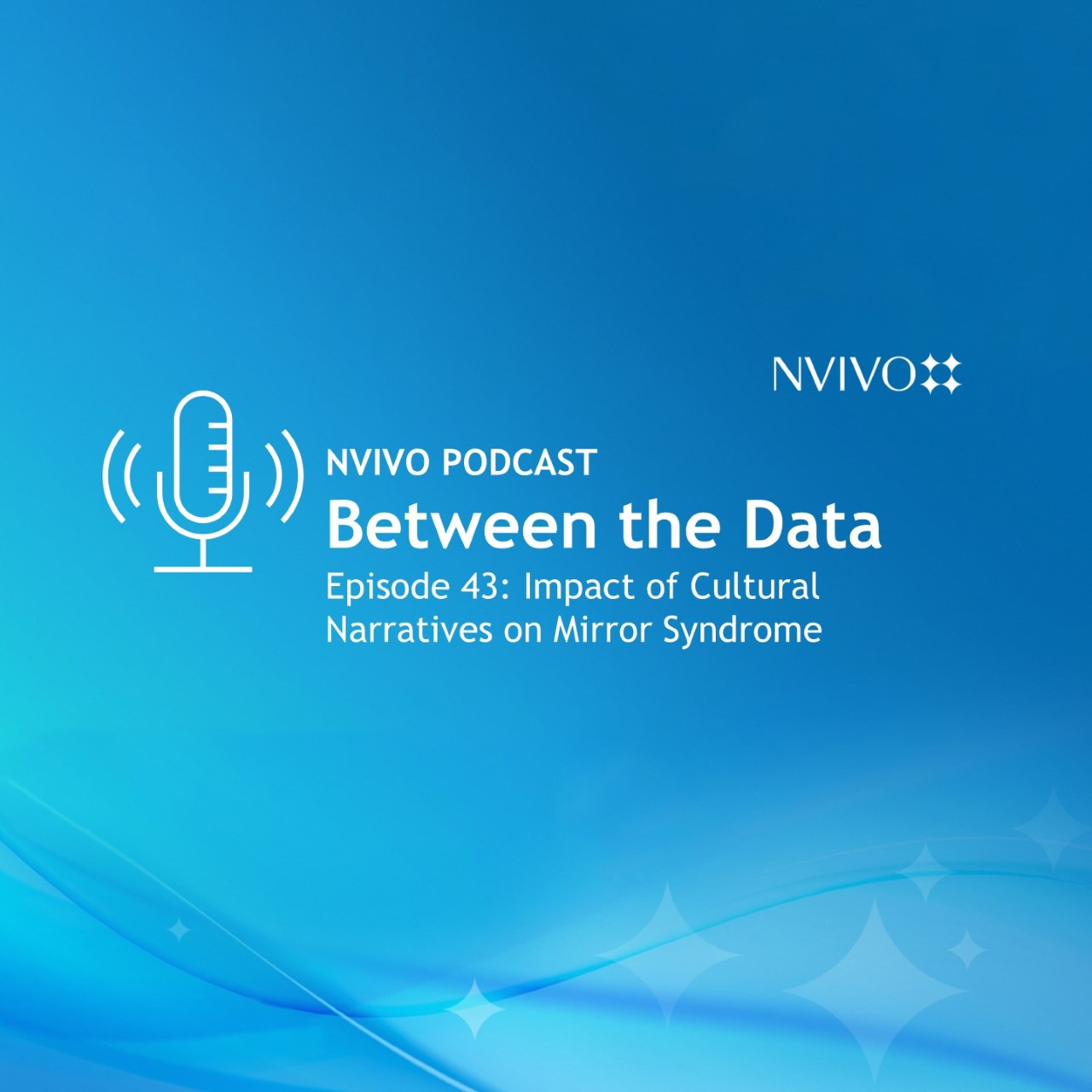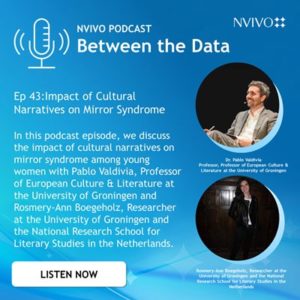
Dr. Pablo Valdivia & Rosmery-Ann Boegeholz interviewed by Dr. Stacy Penna, Engagement and Enablement Director
NVivo Podcast Between the Data Ep 43
It’s hard to think of a time when social media wasn’t a part of our lives. Indeed, for many young people, it always has been. Unfortunately, in a media-saturated culture that prizes unrealistic standards for bodies, especially female bodies, the power of social media to transmit harmful cultural narratives can have a negative impact, especially on young women.
In the latest episode of the NVivo Podcast - Between the Data, NVivo Engagement and Enablement Director Dr. Stacy Penna talks to Pablo Valdivia, Professor of European Culture & Literature at the University of Groningen, and Rosmery-Ann Boegeholz of the University of Groningen and the National Research School for Literary Studies in the Netherlands, about their research into how cultural narratives about women’s bodies on social media are feeding into higher rates of body dysmorphia, also known as mirror syndrome.
>> Listen to the Full NVivo Podcast Here
Cultural narratives can be powerful forces shaping our worldview. Ms. Boegeholz was drawn to this topic after noticing how many people she knew insisted on using filters and photo editors to enhance images of themselves before uploading them to social media channels.
At their most extreme, cultural narratives about women’s bodies as communicated can lead to mirror syndrome—and in fact, more and younger women are being diagnosed with the condition. “The current dominant cultural narrative tells women that they have to do whatever it takes to feed into unrealistic, unreachable bodies,” Dr. Valdivia points out.
Gathering Robust Data with NVivo
Professor Valdivia and Ms. Boegeholz are working with a group of participants to collect data on their social media usage and impressions. Being able to use qualitative as well as quantitative data is crucial, they say. “If we only pay attention to purely quantitative data, we cannot access key information and processing that shapes affect ways of thinking of how we narratively make sense of our bodies and the world we live in,” says Ms. Boegeholz.
NVivo enables them to gather a multidimensional range of information from participants in their study, such as how body dysmorphia affects emotional and cognitive well-being and how cultural elements might point to opportunities to improve the treatment and diagnosis of mirror syndrome.
NVivo is a great help, allowing them to be more creative in their approach to even this extremely complex data. “NVivo has been a true game changer,” says Dr. Valdivia. “It has expanded in multiple ways how we analyze our data and carry out and design our research.”
As for outcomes, the researchers are hopeful that their findings can help policymakers find solutions and expand the public’s understanding of the damage negative cultural narratives on social media can do.
Listen to the NVivo Podcast for more details about their research and how NVivo helped with data analysis and insights.

